It’s a real challenge to recover from a disastrous first play.
The first time I got ArcheOlogic (2023, Ludonaute) to the table, a friend of mine broke out her copy at a game day with four of us at the table. Five minutes into the teach, another player at the table voiced his concerns with the game’s design.
“This is going to be bad,” he blurted out. The teach continued, but a dark cloud hung over the remainder of the teach and the first few turns.
In a show of clairvoyance, that first play of ArcheOlogic was a disaster. Two of us weren’t really sure we had the rules down, the downtime was appalling, and the player who won did so without any clear way of the other players knowing how he did it.
It was a mess. I stood up from the table with real questions. I waited three weeks to play the game again, but I made sure to get one condition down pat—I played ArcheOlogic solo.
Play it solo, and ArcheOlogic has a chance to be a good addition to your light deduction game shelf space.
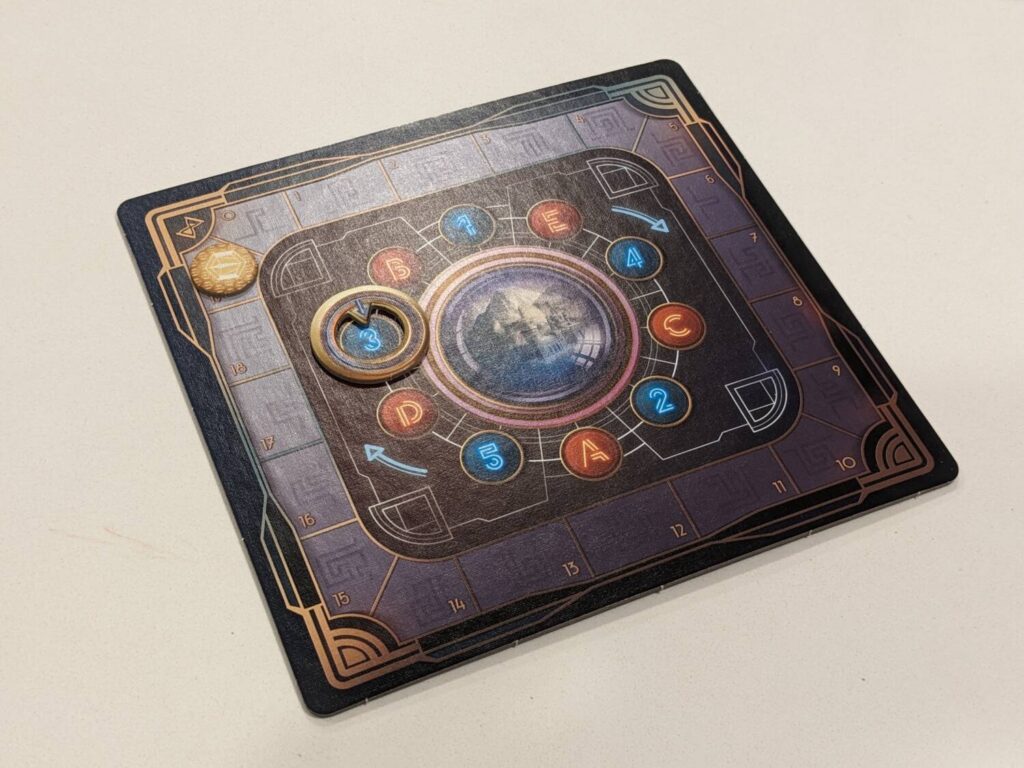
The Archeoscope
Yoann Levet is the designer of ArcheOlogic; he is also the co-designer of Turing Machine, the best deduction game I tried in 2022.
That set my expectations to “lofty” for this new production, because I loved the accessibility of Turing Machine and the stellar production from Le Scorpion Masqué. Turing Machine wowed everyone who joined me for my review plays.
ArcheOlogic isn’t as handsome a production as Turing Machine, save for one item: the Archeoscope, a handheld contraption that is a bit like a magnifying glass that deciphers clues from the coded card used in each game. By matching up the card to the back of the Archeoscope, players can gather data on the location of the six polyomino shapes featured in every game.
A time track is used to track turn order, a bit like the deduction game The Search for Planet X. The track is used to show how much time is spent for each player to take their respective actions.
The player currently last in turn order is the active player. They will spend 1-3 time on each turn picking which types of clues they want to investigate on the 5×5 grid of squares where the six shapes are hidden. Want to spend lesser amounts of time? Set the Archeoscope to look for the empty squares or total number of shapes in a row or column of the grid. The time spent on a turn will rise if players want to investigate a specific shape, depending on its size.
Once a player wants to test for a solution, they spend four time to leapfrog to the front of the pack, then wait for other players to finish another turn before that solution test is resolved. If a player is partially correct, they get to take more turns to continue trying to solve the puzzle. (In other words, players are not instantly eliminated for making an incorrect guess.)
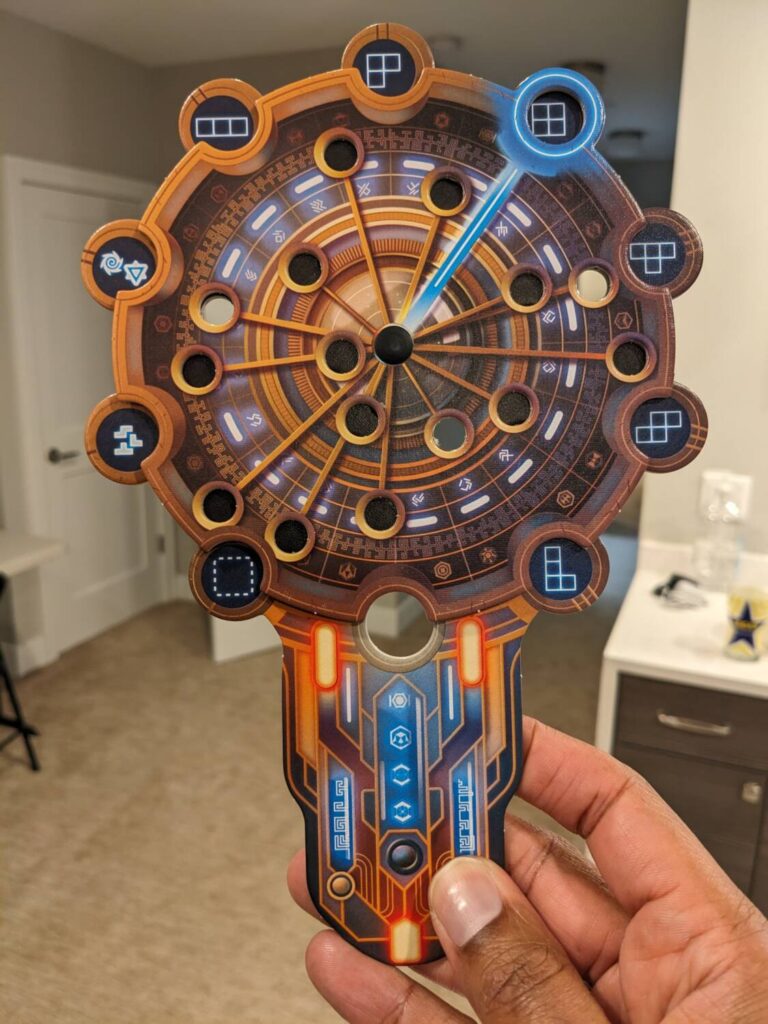
Here’s the downside to the Archeoscope, and data gathering in general in ArcheOlogic—players get their data, then mark any notes on a sheet of paper behind their player screen. But even when knowing what other players are looking for, that doesn’t help me with anything I need to know.
Remember any game of Clue, where you were able to slowly surmise which cards other players at the table have by hearing everyone else’s questions of that player? That’s not a thing here. This means that in-between your turn and the turns of others, there is not a single thing to do. (Even in a game like Sleuth, you can still use other people’s turns to whittle down your choices to a final solution.)
In a four-player game of ArcheOlogic—i.e., my first play—this became a disaster. I would take a turn and look into a clue with the Archeoscope, learn a little something, then wait five minutes with nothing to do and nothing to learn from anyone else. Yikes!
But in a solo game, ArcheOlogic turns that frown upside down. Games become an interesting puzzle that present both starting clues and end-game solutions through a website that is very simple to use. You pick a clue type to investigate, jot down your notes, then take another turn right away. Yes, the Archeoscope feels like a bit of a gimmick, but across my six plays it didn’t get in the way of a good time.
And the way clues are doled out made me feel clever. There are only 28 coded cards in the box, and I played a quarter of the game in about 90 minutes. The app doesn’t have more clue cards (and even if it did, you couldn’t use the Archeoscope with the app), so there are some limitations here.
As a logic puzzle, ArcheOlogic is interesting. And it is built for the player of the now, which means it will get a few plays before moving out of a collection.
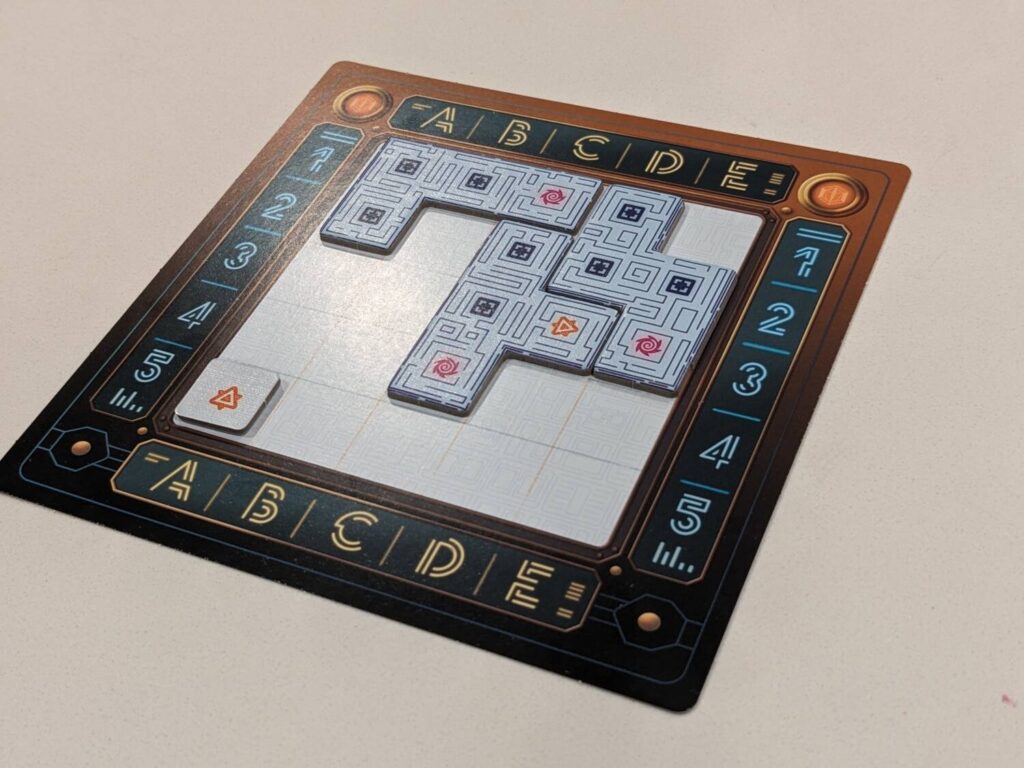
Turing Machine, This is Not
Again, I’m a big fan of Turing Machine. Everything about it worked for me and, of particular note, Turing Machine worked whether I played solo or with friends because of the simultaneous nature of the clue gathering.
As a solo game, ArcheOlogic was fun, and it was interesting to try and score high enough to be considered a “master architect” in the game’s score challenge system. I just can’t play this with a group and the puzzle format won’t be different from game to game. You will always need to find the location for the six shapes on the same 5×5 grid to win. After six plays, ArcheOlogic already feels like it is running out of steam.
For a player looking for a $30 puzzle experience, ArcheOlogic is enjoyable. The field of these 30-minutes-or-less deduction games is deep, so be sure to consider some of the other choices mentioned earlier in this review for some alternatives. Happy hunting!


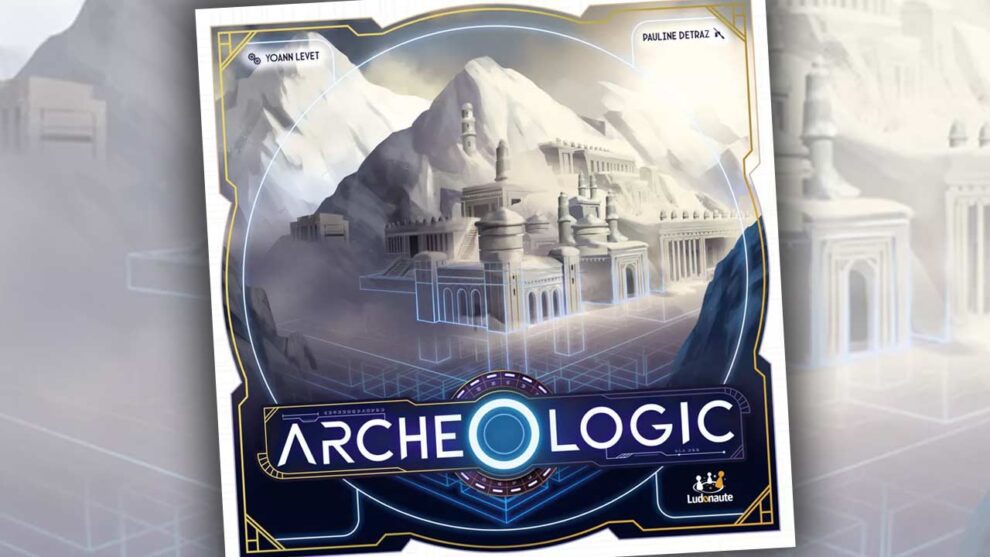


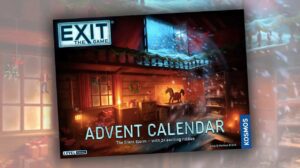
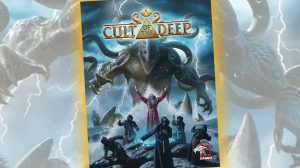




You have written a wonderful review that makes it clear this is not for me or my group.
Thanks, as always, for an amazing review.